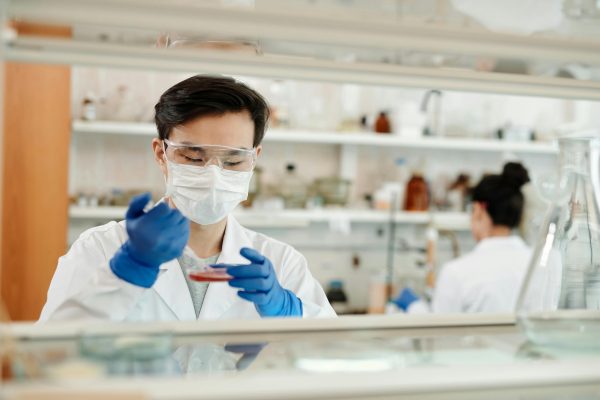High prolactin levels, a condition known as hyperprolactinemia, can affect men’s health in various ways. Prolactin is a hormone primarily associated with lactation in women, but it also plays essential roles in men’s reproductive and metabolic systems. Understanding the symptoms of high prolactin in men can help in seeking timely treatment to prevent potential complications.
- What is Prolactin and Why is it Important?
- Causes of High Prolactin in Men
- Prevalence and Impact of High Prolactin Levels in Men
- Key Symptoms of High Prolactin in Men
- Diagnosis of High Prolactin Levels
- Treatment Options for High Prolactin in Men
- Lifestyle Changes to Manage Prolactin Levels
- The Importance of Early Detection
- Sources and Studies on High Prolactin Levels in Men
- FAQs: Symptoms of High Prolactin in Men
- Question: What are high prolactin levels in men?
- Question: What are the common symptoms of high prolactin in men?
- Question: What causes high prolactin levels in men?
- Question: How is high prolactin diagnosed in men?
- Question: How is high prolactin treated in men?
- Question: Can high prolactin levels in men affect fertility?
What is Prolactin and Why is it Important?
Prolactin is a hormone produced by the pituitary gland, located at the base of the brain. In men, it helps regulate the immune system and contributes to reproductive health. However, elevated prolactin levels can disrupt hormonal balance, leading to a range of physical and emotional symptoms.
Normal Levels of Prolactin in Men
Typically, men have lower levels of prolactin than women, with normal ranges falling between 2 and 18 nanograms per milliliter (ng/mL). Levels above this threshold are considered high and may indicate an underlying health condition.
Causes of High Prolactin in Men
Understanding the root causes can offer insight into potential treatments. Common causes include:
- Pituitary Tumors (Prolactinomas): The most common cause, these benign tumors in the pituitary gland increase prolactin production.
- Medications: Certain medications, such as antidepressants and antipsychotics, can elevate prolactin levels.
- Hypothyroidism: Underactive thyroid function can lead to high prolactin as the body attempts to balance hormone levels.
- Stress and Lifestyle Factors: Chronic stress, poor diet, and lack of sleep can also elevate prolactin levels.
Prevalence and Impact of High Prolactin Levels in Men
| Category | Statistic | Source |
|---|---|---|
| Prevalence of Hyperprolactinemia | 0.4% to 2% of men are affected by high prolactin | Journal of Clinical Endocrinology & Metabolism |
| Common Age of Diagnosis | 20-50 years | Mayo Clinic |
| Most Common Cause (Prolactinoma) | Prolactinomas account for 40-60% of cases | Cleveland Clinic |
| Impact on Libido and Sexual Health | 75% of men with high prolactin report reduced libido | American Urological Association |
| Incidence of Gynecomastia | 15-20% of men with high prolactin develop gynecomastia | National Institute of Diabetes and Digestive and Kidney Diseases |
| Infertility and High Prolactin | High prolactin is linked to infertility in 15% of cases | Fertility and Sterility Journal |
| Response to Medication | 80% of cases respond well to dopamine agonists | Pituitary Society |
| Prolactin Levels Considered High | Above 18 ng/mL for men | American Association of Clinical Endocrinologists |
| Vision Problems from Prolactinoma | Up to 30% experience vision issues due to tumor growth | Journal of Neurosurgery |
| Efficacy of Surgical Intervention | 60-85% success rate in reducing prolactin levels | Endocrine Reviews |
Key Symptoms of High Prolactin in Men
1. Decreased Libido and Sexual Dysfunction
A decline in libido is one of the most common and troubling symptoms for men with elevated prolactin levels. High prolactin interferes with testosterone production, leading to reduced sexual desire. Men may also experience:
- Difficulty in achieving or maintaining erections
- Reduced satisfaction from sexual activity
- Lower energy levels and physical stamina
2. Erectile Dysfunction
High prolactin disrupts normal erectile function by suppressing testosterone. This can cause erectile dysfunction (ED), a persistent inability to achieve or maintain an erection suitable for sexual activity.
3. Gynecomastia (Breast Enlargement)
An increase in prolactin levels can cause gynecomastia or breast tissue enlargement in men. This symptom arises because high prolactin levels shift the hormonal balance, leading to an increase in estrogen relative to testosterone.
4. Infertility
High prolactin levels reduce sperm production and may impact sperm quality, leading to infertility. Prolactin inhibits the secretion of gonadotropin-releasing hormone (GnRH), which is essential for sperm production.
5. Mood Changes and Depression
Hormonal imbalances caused by high prolactin levels can lead to emotional and mental health issues such as:
- Mood swings
- Irritability
- Anxiety
- Depression
6. Decreased Bone Density
Elevated prolactin suppresses testosterone production, leading to reduced bone density over time. Testosterone is essential for bone health, and a prolonged deficiency increases the risk of osteoporosis in men.
7. Fatigue and Weakness
Men with high prolactin levels often experience fatigue, primarily due to lower testosterone levels, impacting energy levels and muscle strength.
8. Vision Problems and Headaches
Large pituitary tumors can compress nearby structures, such as the optic nerves, resulting in visual disturbances. Common visual symptoms include blurred vision or difficulty with peripheral vision. Additionally, tumors can cause chronic headaches due to increased pressure on surrounding tissues.
Diagnosis of High Prolactin Levels
Diagnosing high prolactin levels typically involves a blood test to measure prolactin concentration. Additional diagnostic tools may include:
- MRI and CT Scans: Used to detect prolactin-secreting tumors in the pituitary gland.
- Thyroid Function Tests: Since hypothyroidism can raise prolactin levels, thyroid testing can help rule out thyroid dysfunction as a cause.
- Medications Review: Identifying medications that may contribute to elevated prolactin.
Treatment Options for High Prolactin in Men
1. Medications
Dopamine agonists like cabergoline and bromocriptine are commonly prescribed to reduce prolactin levels. These medications work by stimulating dopamine receptors, which inhibit prolactin release in the pituitary gland.
2. Surgery
In cases where medication is ineffective, or if a prolactinoma continues to grow, surgery may be required to remove the tumor.
3. Radiation Therapy
Radiation therapy may be recommended for men who do not respond to medications or surgery. It is often considered a last resort due to its potential side effects.
4. Treating Underlying Conditions
If elevated prolactin is due to hypothyroidism or medication, treating the underlying cause can often normalize prolactin levels.
Lifestyle Changes to Manage Prolactin Levels
Certain lifestyle modifications can also support overall hormonal balance:
- Reduce Stress: Practicing relaxation techniques like meditation or yoga can help manage prolactin levels.
- Improve Sleep: Quality sleep is essential for hormonal health.
- Diet and Exercise: A balanced diet rich in vitamins and minerals, combined with regular exercise, supports healthy hormone levels.
The Importance of Early Detection
Early detection and treatment of high prolactin levels are crucial in preventing complications such as infertility, sexual dysfunction, and osteoporosis. Men experiencing symptoms should seek medical evaluation to rule out underlying health conditions.
Sources and Studies on High Prolactin Levels in Men
- American Urological Association (AUA)
“Hyperprolactinemia and its Effects on Male Sexual Health”
Study Overview: This study, published by the American Urological Association, explores the relationship between elevated prolactin levels and decreased libido in men. It highlights that nearly 75% of men with hyperprolactinemia report significant reductions in libido and overall sexual satisfaction.
Link: American Urological Association - Journal of Clinical Endocrinology & Metabolism
“Prevalence and Diagnosis of Hyperprolactinemia in Men”
Study Overview: A study that identifies the prevalence of hyperprolactinemia in men as approximately 0.4% to 2%. The research explains that while more common in women, high prolactin levels are also underdiagnosed in men, leading to delayed treatment.
Link: Journal of Clinical Endocrinology & Metabolism - Cleveland Clinic
“Prolactinoma and Hormonal Imbalances in Men”
Study Overview: This comprehensive study discusses prolactinomas (pituitary tumors) and their prevalence as a primary cause of hyperprolactinemia, which accounts for about 40-60% of high prolactin cases in men. It also covers the tumor’s impact on testosterone levels and potential for vision impairment.
Link: Cleveland Clinic - National Institute of Diabetes and Digestive and Kidney Diseases (NIDDK)
“The Impact of High Prolactin on Male Physiology”
Study Overview: A clinical study conducted by the NIDDK focusing on how elevated prolactin levels can lead to symptoms like gynecomastia, with approximately 15-20% of cases resulting in visible breast enlargement in men.
Link: NIDDK - Endocrine Society – Endocrine Reviews
“Effectiveness of Surgical and Medical Treatments for Prolactinoma”
Study Overview: The Endocrine Society published a review showing that approximately 80% of men with prolactinomas respond favorably to dopamine agonist therapy, with surgical interventions having a 60-85% success rate in controlling prolactin levels.
Link: Endocrine Reviews - Mayo Clinic
“Common Causes and Symptoms of High Prolactin in Men”
Study Overview: This article provides an overview of age-related prolactin variations and highlights that high prolactin levels most frequently affect men aged 20-50, often leading to infertility and other health complications if left untreated.
Link: Mayo Clinic - Fertility and Sterility Journal
“Hyperprolactinemia and Male Infertility: A Correlation Study”
Study Overview: This journal article discusses a study linking high prolactin levels to infertility, finding that elevated prolactin is a contributing factor in approximately 15% of infertility cases among men.
Link: Fertility and Sterility - Journal of Neurosurgery
“Prolactin-Secreting Pituitary Tumors and Vision Impairment in Men”
Study Overview: A research article explaining how prolactin-secreting tumors can cause vision issues in up to 30% of cases due to optic nerve compression, emphasizing the importance of early diagnosis.
Link: Journal of Neurosurgery
FAQs: Symptoms of High Prolactin in Men
Question: What are high prolactin levels in men?
High prolactin levels, or hyperprolactinemia, occur when the hormone prolactin is elevated in the blood. For men, levels above 18 ng/mL are typically considered high and may indicate an underlying health issue.
Question: What are the common symptoms of high prolactin in men?
Common symptoms include decreased libido, erectile dysfunction, fatigue, mood changes, gynecomastia (breast enlargement), and sometimes infertility. Some men may also experience vision problems if a prolactinoma (pituitary tumor) is present.
Question: What causes high prolactin levels in men?
High prolactin can be caused by pituitary tumors (prolactinomas), certain medications, hypothyroidism, and chronic stress. Lifestyle factors and certain health conditions may also contribute.
Question: How is high prolactin diagnosed in men?
High prolactin is diagnosed through a blood test. Additional tests, such as MRI or CT scans, may be used to detect pituitary tumors, and thyroid function tests are sometimes conducted to rule out hypothyroidism.
Question: How is high prolactin treated in men?
Treatment may involve medications like dopamine agonists to lower prolactin levels, surgery for pituitary tumors, or addressing underlying causes such as thyroid disorders. Lifestyle changes may also support hormonal balance.
Question: Can high prolactin levels in men affect fertility?
Yes, high prolactin can interfere with sperm production and testosterone levels, potentially leading to infertility. Treating high prolactin can often improve fertility outcomes.
How to Fix Premature Ejaculation: Effective Solutions for Men
Dopamine and Erectile Dysfunction: Understanding the Connection
Effective Ways to Improve Male Performance: Medications, Lifestyle, and Natural Solutions





